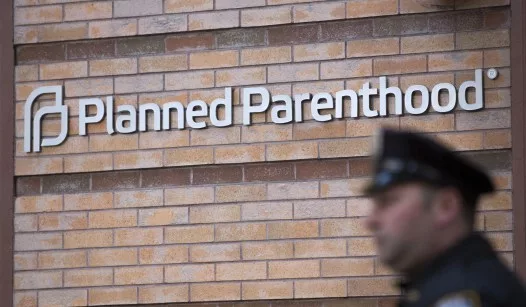The recent decision regarding funding for Planned Parenthood has sparked widespread debate and concern. Many view this ruling as a troubling misstep that raises significant questions about the implications for women’s health services across the United States.
At the heart of this controversy is Planned Parenthood’s role as a provider of essential health services, including reproductive health care, cancer screenings, and STI testing. The organization has long been a target for political scrutiny, often becoming a focal point in the larger debate over abortion rights and women’s health. The latest ruling, which aims to restrict funding for Planned Parenthood, is perceived by many as a misguided approach that could have dire consequences for countless individuals who rely on these services.
Critics argue that the decision is riddled with logical fallacies and fails to consider the broader implications for public health. By limiting access to comprehensive health care, this ruling could disproportionately affect low-income individuals and communities of color, who are already facing barriers to accessing necessary medical services. The decision seems to overlook the fact that Planned Parenthood provides a wide range of health care services beyond abortion, including preventive care that is vital for maintaining overall health.
Moreover, the ruling raises important questions about the politicization of health care. The ongoing battle over funding for organizations like Planned Parenthood is emblematic of a larger struggle between differing ideologies regarding women’s rights and health care access. As political leaders continue to push their agendas, it becomes increasingly clear that the health and well-being of millions hang in the balance.
Supporters of Planned Parenthood argue that cutting funding is not only detrimental to the organization but also to the public health infrastructure as a whole. They emphasize that access to reproductive health services is a fundamental right and that denying funding to Planned Parenthood undermines the progress made in women’s health care over the past several decades. Many fear that this decision could set a dangerous precedent, leading to further restrictions on health care access for vulnerable populations.
In light of these developments, it is crucial for citizens to stay informed and engaged in the conversation surrounding women’s health and reproductive rights. Advocacy efforts and public support for organizations like Planned Parenthood can play a significant role in countering the effects of such decisions. As the debate continues, it is essential to consider the broader implications of funding cuts and to advocate for policies that prioritize health care access for all individuals, regardless of their socio-economic status.
In conclusion, the recent decision on Planned Parenthood funding is more than just a legal ruling; it reflects a deeper ideological divide within our society. As we navigate this complex landscape, it is vital to prioritize the health and well-being of all individuals, ensuring that access to essential health care services remains a fundamental right. Engaging in informed discussions and supporting advocacy efforts will be key to shaping a future where everyone has access to the care they need.
